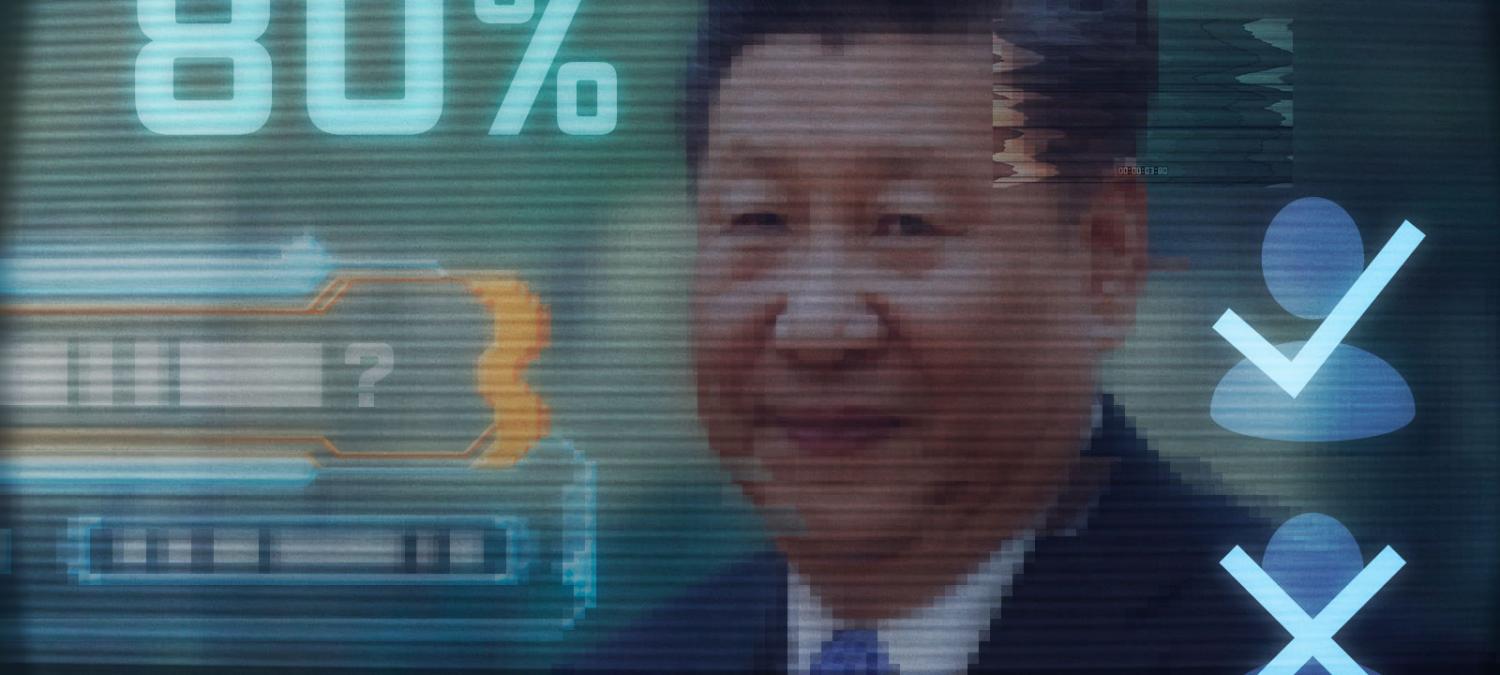American broadcaster Edward Murrow, lamenting the viewing habits of the population in the 1950s, paraphrased Karl Marx: “If television and radio are to be used to entertain all of the people all of the time, then we have come perilously close to discovering the real opiate of the people.”
More than half a century later and a cultural world away, Xi Jinping would agree. He and the Chinese Communist Party are on a mission to reduce “toxic” entertainment in the lives of their people, and their weapons are Xi’s political theory and Marx himself, albeit in digital form.
A season called Socialism Is Kind of Cool features a futuristic set with a virtual robot and a digitally rendered Karl Marx.
Last week, Xi became the focus of a new show aimed at millennials and Gen Z called Studying Xi Jinping in the New Era. It’s the second in a season called Socialism Is Kind of Cool, and it features a futuristic set with a virtual robot and a digitally rendered Marx, flashy ingredients presumably designed to distract from the fact that there appear to be no prizes or money for contestants – just the kudos of winning (or trying and failing – live! – on TV), and the fact that it’s a quiz with limited scope: Xi Jinping and his life and times.
Speakers from the Xi Thought Institutes that sprang up at universities after the CCP announced that his official musing would be enshrined in the constitution appear on the show as guests. Challenges include knowing trivia about the leader’s early life, to being able to speak for 90 seconds on how Xi’s policies have benefited China.
@nytimes discusses China's newest five-part addition to prime time television, "Studying Xi in the New Era,": https://t.co/w5jQhd4O2X pic.twitter.com/ll3rQ4UvUk
— China US Focus (@ChinaUSFocus) October 3, 2018
The show is part of a campaign to spread Xi Jinping Thought among the public, particularly the young. It’s also part of the CCP’s campaign to combat what they see as vulgar and decadent television that has become maddeningly popular, especially among younger people.
Hunan TV, which airs Studying Xi, has been one of the prime offenders, airing one of the country’s first idol-style singing competitions, Super Girl, which became a phenomenon. The 2005 final was watched by 400 million viewers, but the party did not share the love. An official described it as “poison for the youth” saying audiences had been “corrupted”. The show was banned in 2011.
The state would have been thrilled to see Hunan TV slip in the rankings afterwards, if the two networks that rose in its place, Zhejiang TV and Jiangsu TV, hadn’t been airing more or less the same fare. In 2010, the latter attracted the state’s attention when a contestant on its dating show If You Are the One (which airs in Australia on SBS) said she would “rather cry in the back of a BMW than laugh while riding on a boy’s bicycle”. The show managed to survive the official displeasure and has become the most watched dating show in the Chinese speaking world. Hunan too, has clawed its way back up the rankings by programming a mix of reality TV, celebrity cooking shows and opulent dramas that appeal to younger viewers.
Still the CCP tries to push back, arguing for a more “wholesome” agenda. In 2015, it was widely reported that the State Administration of Press, Publication, Radio, Film and Television (SAPPRFT) was preparing to bring in restrictions for reality TV that would apply to hugely popular shows like Hunan TV’s Dad, Where Are We Going and Zhejiang’s Running Man. An SAPPRFT official quick denied the rumours, but the government took advantage of the discussion to push its agenda.
“The discussion in recent days has provided us with a lot of social feedback. We still need to have reality shows, but there need to be guidelines on how to make them more meaningful and valuable,” Gao Changli, the SAPPRFT media head said.
Nevertheless, official edicts are made, and television executives must be nimble: in July last year, it was announced that more patriotic content would replace costume dramas and idol shows during August, in order to celebrate the 90th anniversary of the People’s Liberation Army. Programmers scrambled to rejig schedules that had been in place for months.
All foreign shows pass through the SAPPRFT before appearing on video sites and local shows too must be wary: popular and beleaguered actress Fan BingBing had her historical drama The Empress of China re-edited after it was decided that her low-cut costumes were considered “unhealthy”.
The role, then, of Studying Xi Jinping in the New Era is two-fold: instill the presence of Xi and his teachings into the hearts and minds of China’s citizens, and provide an antidote to the toxic entertainment so beloved by the young.
Will it work? Viewership was about 400,000 a night. In contrast, each episode of the costume drama Story of Yanxi Palace was watched about 200 million times on streaming platform iQiyi. And viewers on Weibo were not convinced.
“Anyone who had the wrong answer should be re-educated to meet the requirement in the new era,” one joked.
Sometimes, not even Karl Marx can help.

